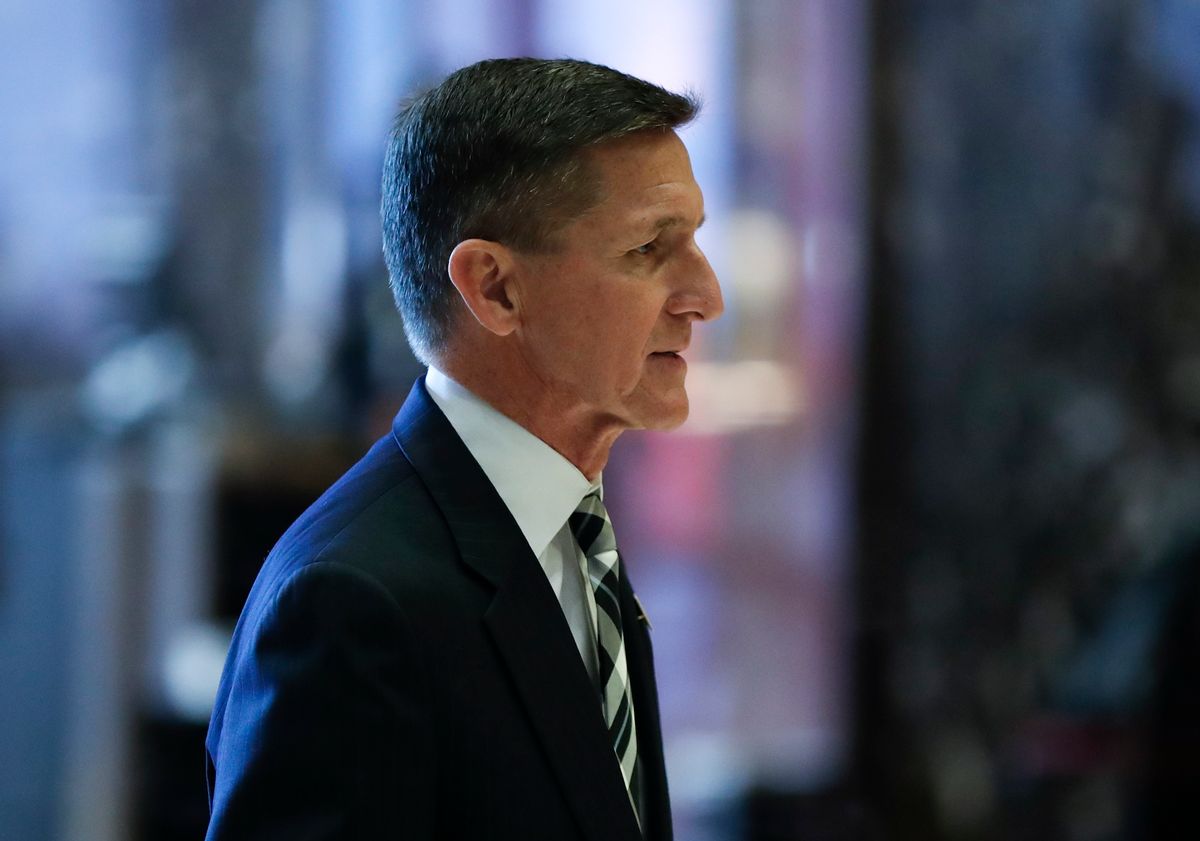Donald Trump last week tapped problematic retired Army Lt. Gen. Michael Flynn to be his national security adviser. Flynn joins a growing list of wildcards that the president-elect will soon call a cabinet.
Dana Priest wrote a revealing profile of Flynn for The New Yorker this week. Here's what we learned:
1. As an intel officer, Flynn "once valued tips gleaned from tribal reporters."
"At his request, his communications staff would send him the daily dispatches published by tribal media outlets in Pakistan’s troublesome northwest region. These articles chronicled skirmishes, feuds, and revenge killings — it was unfiltered information that any decent Western news stringer would know how to read, but that, seven years into the war in Afghanistan, the American military was still far from absorbing. Flynn got it, though. He was drawn to the little flecks of truth scattered on the ground."
2. "Flynn facts" are untrue.
"His subordinates started a list of what they called 'Flynn facts,' things he would say that weren’t true, like when he asserted that three-quarters of all new cell phones were bought by Africans or, later, that Iran had killed more Americans than Al Qaeda. In private, his staff tried to dissuade him from repeating these lines."
3. He doesn't like red tape.
"He once told me about a period he spent assigned to a C.I.A. station in Iraq, when he would sometimes sneak out of the compound without the 'insane' required approval from C.I.A. headquarters, in Langley, Virginia. He had technicians secretly install an Internet connection in his Pentagon office, even though it was forbidden. There was also the time he gave classified information to nato allies without approval, an incident which prompted an investigation, and a warning from superiors. During his stint as Mullen’s intelligence chief, Flynn would often write 'This is bullshit!' in the margins of classified papers he was obliged to pass on to his boss, someone who saw these papers told me."
4. He "doesn't have any proof" to corroborate his conspiracy theory about his own firing.
"Flynn began saying that he had been fired because President Obama disagreed with his views on terrorism and wanted to hide the growth of ISIS. I haven’t found anyone yet who heard him say this while he was still in the military. In the past, I’ve asked Flynn directly about this claim; he has told me that he doesn’t have any proof — it’s just something he feels was true."
5. He has to help himself to help Trump.
"[Admiral Michael] Mullen, this week, suggested to me that Flynn would need to change in order to succeed in his new role. 'Mike Flynn was a terrific intel officer when he worked for me as a two-star and was both dynamic and often contrarian,' Mullen said. 'Those qualities need to be tempered as national-security adviser in order to serve the next President as a thoughtful and strategic adviser.'"
Read the full article here.

Shares